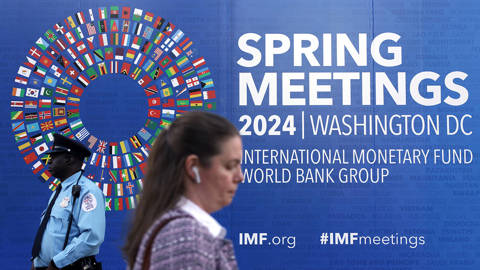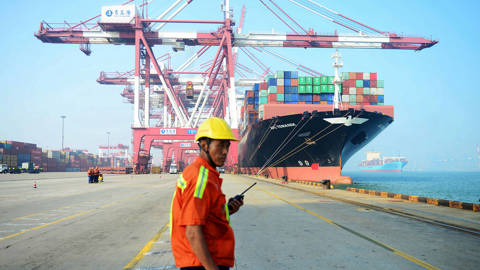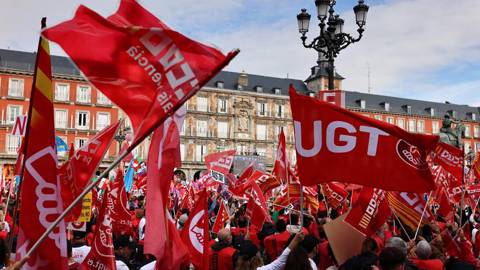CAMBRIDGE: In recent weeks, debates over the future of the International Monetary Fund and the World Bank have grabbed headlines. A US Congressional Commission of experts, on which I served, issued a report, dubbed the Meltzer Report (after the Commission’s Chairman, economist Allan Meltzer), calling for dramatic reforms of both institutions. Then, Trans-Atlantic bickering over the selection of a new IMF Managing Director broke out. The selection process was unpleasant (for example, developing countries had no real say), but in the end, the excellent choice of German Finance official Horst Kohler emerged. As another important factor in the debate, US Treasury Secretary Lawrence Summers issued his own calls for modest World Bank reforms, following proposals that he made earlier for modest IMF reforms.
The real debate is about the scope of the two institutions. During the past 20 years, the IMF and the World Bank played a large role in developing countries and in the postcommunist transition. Rich countries, especially the US, used the IMF and World Bank as instruments of financial diplomacy. Both institutions have been used by the US and Europe to get money to favored countries – Mexico, Russia, or East Asia – in times of crisis. Both the IMF and World Bank have also been empowered to impose strong conditions on the economic programs of countries that turn to it for help.
IMF and World Bank critics, including members of the Meltzer Commission, think that the two institutions are too big, too powerful, and too over-extended. The IMF tries to manage the economic operations of more than 50 countries. In many cases, the IMF imposes its programs for years or even decades, far after an economic emergency ends. It maintains its influence because the US insists that poorer countries should have IMF programs if they are to receive relief on their debt or receive other kinds of financial help from outside the IMF.
The World Bank lends money to dozens of countries in hundreds of programs. Many World Bank’s recipients, ironically, have normal access to private capital markets, so that World Bank lending is a small part of what those countries can borrow from the rest of the world through normal market mechanisms.
The Meltzer Commission noted that the IMF, with just one thousand or so professional staff, could not and should not try to run dozens of countries’ economic programs. The result is superficiality, arbitrariness, excessive intrusion into national sovereignty and, as a result of all of this, poor or mediocre results. It also noted that the IMF and World Bank overlap, so that there was no real accountability for either institution. If something went wrong, the IMF could attribute responsibility to the World Bank, and vice versa.
The Meltzer Commission recommended scaling back the two institutions, getting each to focus on core responsibilities and thus improve performance. For the IMF, the main recommendation is that it return to its original responsibility: preserving short-run macroeconomic stability in the world economy by making short-term loans available to member governments in an emergency. In order to accomplish this narrowing and refocusing of tasks, the IMF should stop imposing itself on dozens of poor countries around the world.
For the World Bank, the Commission recommended that the Bank reduce its lending activities in richer developing countries, and focus attention on poor countries, where needs are urgent. This would involve scaling back World Bank operations to countries with investment-grade credit ratings that are already able to draw upon private capital for development. Also, countries with per capita incomes above $4,000 would also be cut back from World Bank loans. The billions of poorer people in the world would then be the focus of that institution’s help.
To help poorer countries gain independence from the IMF after years of dependency, the Meltzer commission recommended outright cancellation of the debts of the world’s poorest, highly indebted countries. Part of the reason that many countries turn to the IMF is because governments are bankrupt under the weight of excessive foreign debt. By canceling debt, it would be possible for countries to restore financial health without the need for continuous IMF "assistance" and control.
Predictably, the US Government and senior management of the IMF and World Bank reacted against these recommendations. In their arrogance, these institutions feel that they should continue to determine the fates of much of the developing world. They are not ready to give up any power or responsibility, even if their programs are failing. Sadly, many developing country governments have grown so dependent on these institutions that they too are afraid to lose their dominant hand, even though the programs are often do more harm than good.
The debate continues, and I predict that some time soon, the IMF and World Bank will cut back on their excessive and arrogant over-reaching of power. They will have to do so because their programs do not work well enough to justify their claims for authority.










CAMBRIDGE: In recent weeks, debates over the future of the International Monetary Fund and the World Bank have grabbed headlines. A US Congressional Commission of experts, on which I served, issued a report, dubbed the Meltzer Report (after the Commission’s Chairman, economist Allan Meltzer), calling for dramatic reforms of both institutions. Then, Trans-Atlantic bickering over the selection of a new IMF Managing Director broke out. The selection process was unpleasant (for example, developing countries had no real say), but in the end, the excellent choice of German Finance official Horst Kohler emerged. As another important factor in the debate, US Treasury Secretary Lawrence Summers issued his own calls for modest World Bank reforms, following proposals that he made earlier for modest IMF reforms.
The real debate is about the scope of the two institutions. During the past 20 years, the IMF and the World Bank played a large role in developing countries and in the postcommunist transition. Rich countries, especially the US, used the IMF and World Bank as instruments of financial diplomacy. Both institutions have been used by the US and Europe to get money to favored countries – Mexico, Russia, or East Asia – in times of crisis. Both the IMF and World Bank have also been empowered to impose strong conditions on the economic programs of countries that turn to it for help.
IMF and World Bank critics, including members of the Meltzer Commission, think that the two institutions are too big, too powerful, and too over-extended. The IMF tries to manage the economic operations of more than 50 countries. In many cases, the IMF imposes its programs for years or even decades, far after an economic emergency ends. It maintains its influence because the US insists that poorer countries should have IMF programs if they are to receive relief on their debt or receive other kinds of financial help from outside the IMF.
The World Bank lends money to dozens of countries in hundreds of programs. Many World Bank’s recipients, ironically, have normal access to private capital markets, so that World Bank lending is a small part of what those countries can borrow from the rest of the world through normal market mechanisms.
The Meltzer Commission noted that the IMF, with just one thousand or so professional staff, could not and should not try to run dozens of countries’ economic programs. The result is superficiality, arbitrariness, excessive intrusion into national sovereignty and, as a result of all of this, poor or mediocre results. It also noted that the IMF and World Bank overlap, so that there was no real accountability for either institution. If something went wrong, the IMF could attribute responsibility to the World Bank, and vice versa.
The Meltzer Commission recommended scaling back the two institutions, getting each to focus on core responsibilities and thus improve performance. For the IMF, the main recommendation is that it return to its original responsibility: preserving short-run macroeconomic stability in the world economy by making short-term loans available to member governments in an emergency. In order to accomplish this narrowing and refocusing of tasks, the IMF should stop imposing itself on dozens of poor countries around the world.
SPRING SALE: Save 40% on all new Digital or Digital Plus subscriptions
Subscribe now to gain greater access to Project Syndicate – including every commentary and our entire On Point suite of subscriber-exclusive content – starting at just $49.99.
Subscribe Now
For the World Bank, the Commission recommended that the Bank reduce its lending activities in richer developing countries, and focus attention on poor countries, where needs are urgent. This would involve scaling back World Bank operations to countries with investment-grade credit ratings that are already able to draw upon private capital for development. Also, countries with per capita incomes above $4,000 would also be cut back from World Bank loans. The billions of poorer people in the world would then be the focus of that institution’s help.
To help poorer countries gain independence from the IMF after years of dependency, the Meltzer commission recommended outright cancellation of the debts of the world’s poorest, highly indebted countries. Part of the reason that many countries turn to the IMF is because governments are bankrupt under the weight of excessive foreign debt. By canceling debt, it would be possible for countries to restore financial health without the need for continuous IMF "assistance" and control.
Predictably, the US Government and senior management of the IMF and World Bank reacted against these recommendations. In their arrogance, these institutions feel that they should continue to determine the fates of much of the developing world. They are not ready to give up any power or responsibility, even if their programs are failing. Sadly, many developing country governments have grown so dependent on these institutions that they too are afraid to lose their dominant hand, even though the programs are often do more harm than good.
The debate continues, and I predict that some time soon, the IMF and World Bank will cut back on their excessive and arrogant over-reaching of power. They will have to do so because their programs do not work well enough to justify their claims for authority.